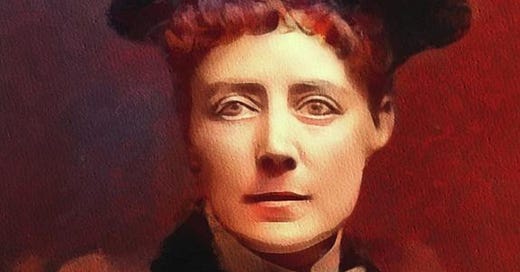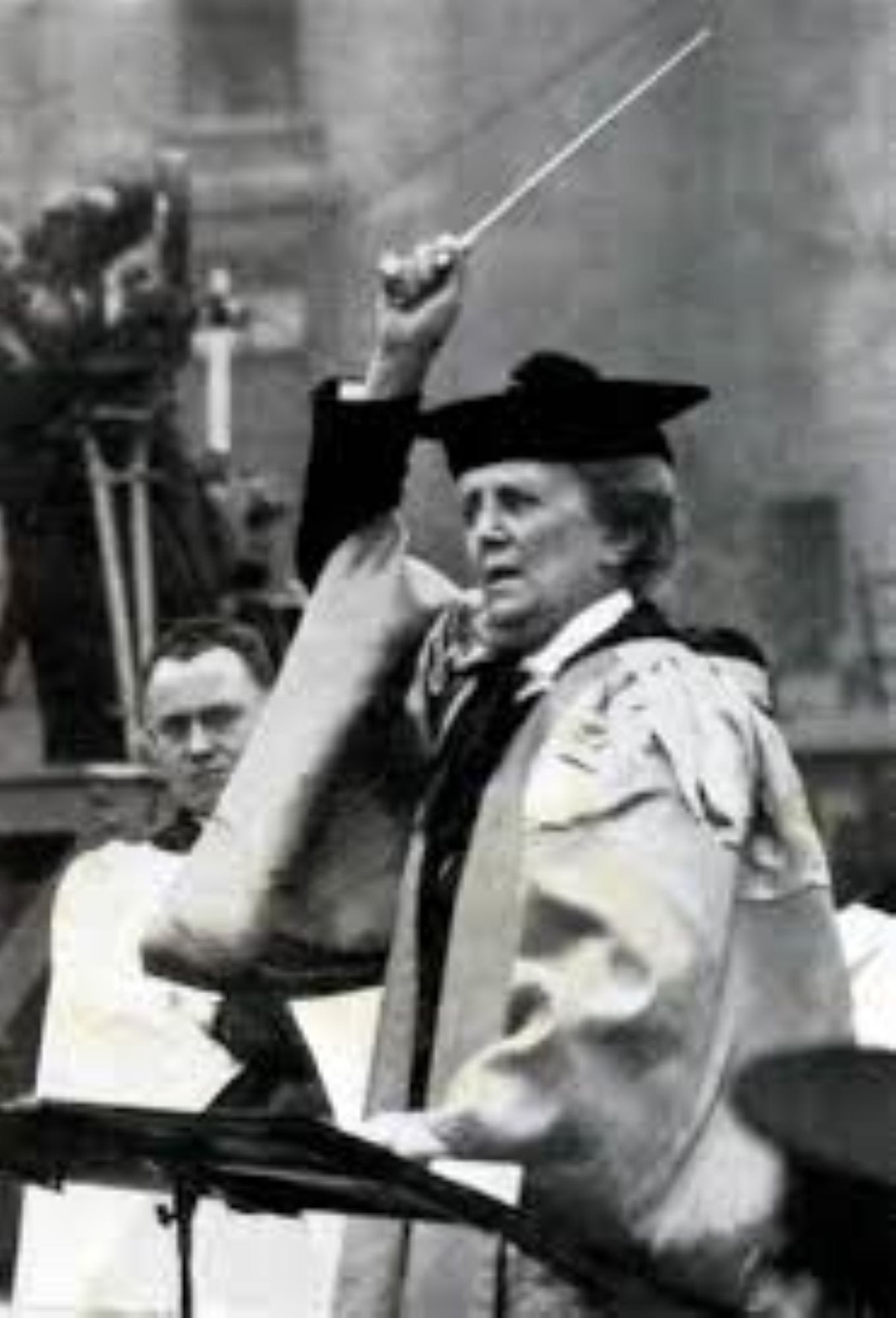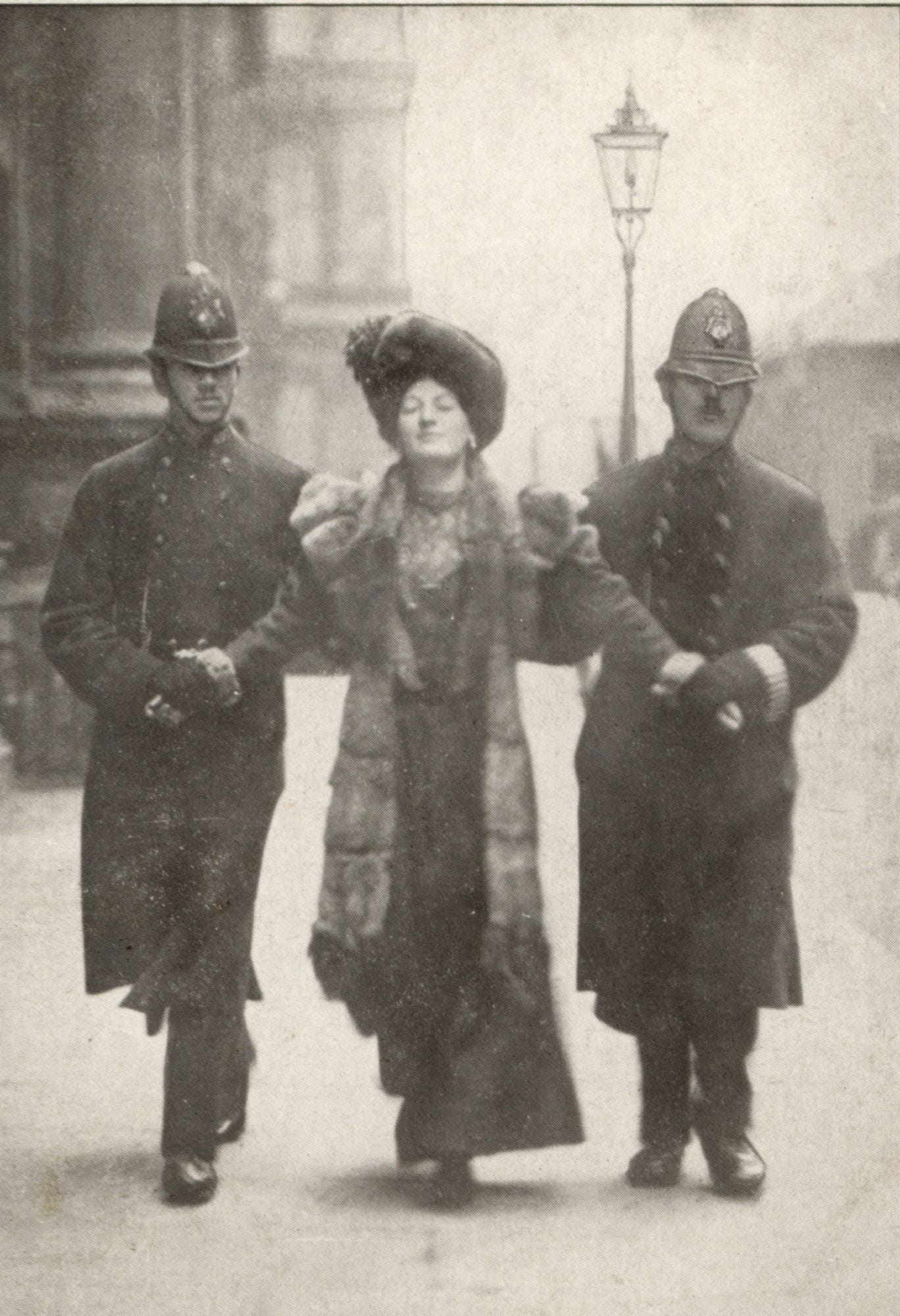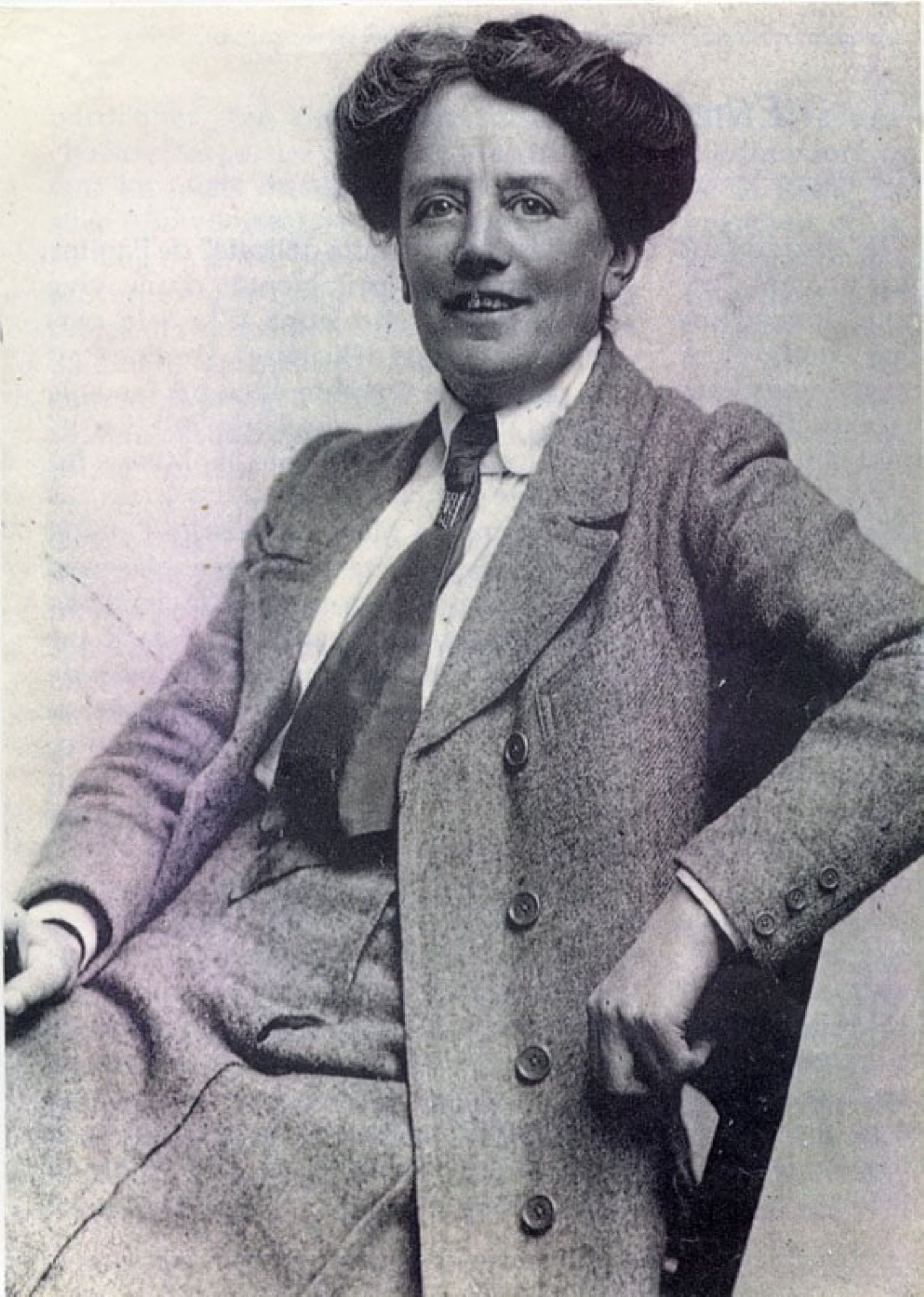Ethel Smyth, composer, firebrand, suffragette
Choir to perform northern premiere of her Mass in D
As Hexham Orpheus Choir prepares to perform the northern premiere of Mass in D by Dame Ethel Smyth (1858 to 1944), the choir’s JULIA GRINT looks back at the extraordinary life of a musical prodigy whose path to the top was fraught with difficulties…
Ethel Smyth’s Mass in D would be far better known if only it had been written by an ‘Eric’ rather than an ‘Ethel’.
It had its premiere in 1893 in the Royal Albert Hall in the presence of royalty. Dedicated to Lady Pauline Trevelyan of Wallington, it’s a majestic, era-defying choral work.
Smyth’s story is a name-dropper’s delight: she knew Brahms, Tchaikovsky and Clara Schumann; she was briefly engaged to Oscar Wilde’s older brother, Willie; she was a close friend of Princess Eugenie of France and Virginia Woolf, with whom she fell in love at first sight… not to mention Queen Victoria, who invited her to play her newly written Mass on the piano in the drawing room of Balmoral Castle.
She managed to pull this off using the piano as an orchestra, her voice to render both solo and choral parts and her feet for drums; the Queen loved it, hence its premiere in the Royal Albert Hall.
Ethel’s story is compelling – if only someone would make a film of it!
As a girl growing up in Sidcup, Kent, she locked herself in her bedroom on hunger strike until her father, Major General John Hall Smyth, allowed her to study music in Leipzig.
From then on, the narrative is one of discovery: how to write for the piano, strings, voices… how to orchestrate (thanks to Tchaikovsky for that), but above all it was how to be taken seriously as a composer.
Marginalised by the establishment, her entire working life was a battle to get her music heard, even though, in December 1920, she was made Dame Commander of the British Empire and was by then the most famous woman composer of her day.
The Daily Mail set about educating the British public about Ethel’s music and at last the Leeds Music Festival stepped up and offered her a foot in the door.
With typical wry Ethel humour, she conducted her choral work, Hey Nonny No, the first line of which is, ‘Men are fools…’
Given her temperament, it’s no wonder that she took two years out from composing to be a leading suffragette.
Alongside her comrade-in-arms – in this case literally – Emmeline Pankhurst (whom she taught to throw bricks, to aid their cause) she served two months in Holloway for smashing an MP’s window.
In the cell adjoining Emmeline’s she wrote her well-known March of the Women, conducting it with her toothbrush as fellow suffragettes marched round the prison yard, singing their anthem.
Although she later remarked that the writing of her Mass had “sweated out” any thought she’d had of converting to Catholicism, she was certainly going through some kind of religious crisis at the time of its composition.
She’d read a copy (borrowed from Pauline Trevelyan) of The Imitation of Christ, the influential 15th Century Christian devotional work by Thomas à Kempis, which had affected her profoundly.
It’s thanks to Pauline, a devout Catholic and another of Ethel’s lovers, that the Mass was written.
Although the Orpheus performance is in Hexham Abbey, the choir’s musical home, the Mass is fit for an opera house – it’s dramatic and huge.
Smyth’s music is unashamedly not what used to be considered feminine, not for the drawing room; it’s a deliberate response to the misogyny that tried to keep this firebrand of a woman in her place.
Also part of the Orpheus concert will be the overture to her opera, The Wreckers. Its themes are not for the faint hearted – ship wrecking, theft, murder – and the overture is suitably stirring and windswept.
This ground-breaking concert, with professional soloists Rachael Heater (soprano), Valerie Reid (alto), Austin Gunn (tenor) and orchestra, conducted by Orpheus director Mark Edwards, is at 7.30pm on May 17 in Hexham Abbey.
Tickets are available now via the Hexham Orpheus Choir website or at the door.







